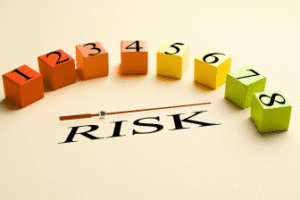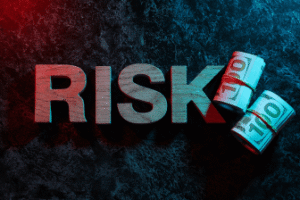
Risk Management Class Syllabus and Curriculum
Risk Management Class Syllabus and Curriculum
In today’s fast-changing and uncertain business world, risk management is an essential skill, not an elective one. Exposure to this field benefits finance graduates, business students, and professionals alike. A risk management course introduces learners to how organisations handle competitive threats, risks, and uncertainties. Before enrolling, it is important to understand the syllabus and scope of study in a risk management course.
This guide summarises the scope, learning objectives, and curriculum of a risk management class, along with insights into the Global Risk Management Institute (GRMI) in India.
Introduction to Risk Management Classes
A risk management class teaches learners the core principles of managing uncertainty within an organisation. Students gain theoretical knowledge and practical insights that prepare them for real-world challenges.
Coursework usually begins with basic concepts such as risk identification and assessment. It then progresses to advanced topics like strategic risk planning, financial modelling, and compliance.
Overview of the Risk Management Course Curriculum
A risk management curriculum helps students understand how risks affect organisations and how they can be managed effectively. Learners explore different risk types — financial, operational, strategic, and reputational — and develop practical solutions.
A typical syllabus includes:
- Introduction to Risk and Uncertainty: Understanding the concept of risk in various business contexts.
- Risk Frameworks and Standards: Learning about international and Indian risk management frameworks.
- Quantitative and Qualitative Risk Assessment: Applying statistical tools and qualitative techniques to evaluate risk exposure.
- Operational and Financial Risk Management: Understanding day-to-day operational risks and financial market exposures.
- Corporate Governance and Compliance: Learning how organisations follow laws and manage compliance risks.
- Business Continuity and Crisis Management: Understanding how businesses prepare for and respond to disruptions.
Each topic helps students gain a broad understanding of how risk management supports strategic decision-making.
Key Learning Objectives of a Risk Management Course
A risk management course focuses on developing analytical and decision-making abilities rather than just theoretical knowledge.
Key learning objectives include:
- Identifying different types of business risks.
- Developing strategies to mitigate and monitor risks.
- Understanding the regulatory and compliance landscape.
- Learning to communicate risk insights effectively.
- Building leadership skills to manage enterprise-level risks.
These objectives are essential for anyone pursuing careers in corporate governance, consulting, or financial risk management.
CASE-STUDY
Enterprise Risk Management (ERM) frameworks are receiving greater attention from Indian regulators, including the Securities and Exchange Board of India (SEBI) and the Reserve Bank of India (RBI). Following the 2023 NBFC liquidity crisis, both organisations advised financial institutions to strengthen their risk governance and operational resilience. This growing regulatory focus has increased the demand for professionals trained in structured risk management practices. Institutions such as GRMI prepare students for this evolving skill area through their industry-focused curriculum.
Learning through Experience in Risk Management Courses
Unlike traditional business courses, risk management programmes emphasise practical application. Students engage in simulations, case studies, and group projects that mirror real business challenges.
For instance, learners might analyse a case involving financial losses or operational disruptions and propose strategies to reduce risks. Such exercises help students apply theoretical frameworks and improve their analytical thinking.
Many diploma programmes also include internships or live projects. These experiences allow students to observe how organisations handle risks and develop their own perspectives on structured problem-solving.
The Importance of Selecting the Right Institution for Risk Management in India
Choosing the right institution is crucial when pursuing a certificate or diploma in risk management. The Global Risk Management Institute (GRMI) is one of India’s leading institutions in this field, known for its modern approach to education.
GRMI’s programmes are designed to equip future risk leaders with the right blend of theory and practice. The institute focuses on real-world projects, practical learning, and strategic thinking — making it an ideal choice for both students and professionals.
GRMI’s PGDRM Course: A Comprehensive Risk Management Diploma
Among India’s risk management programmes, the Post Graduate Diploma in Risk Management (PGDRM) by GRMI stands out. This one-year diploma blends academic rigour with strong industry exposure. Students not only learn theoretical concepts but also apply them in real business environments.
Key Features of GRMI’s Programme:
- Holistic Curriculum: Covers financial, operational, strategic, and enterprise-wide risks.
- World-Class Faculty: Courses are taught by industry practitioners and global experts.
- Industry Partnerships: Collaborations with top organisations ensure industry relevance.
- Practical Experience: Students engage in corporate projects and case-based learning.
- Career Support: Placement assistance and career mentoring prepare students for impactful roles.
The PGDRM is more than a diploma — it is a gateway to global careers in finance, consulting, and risk management. It suits both fresh graduates and working professionals seeking career advancement.
Skills Developed Through a Risk Management Class
After completing a risk management certificate course, students acquire essential skills to navigate complex business environments. These include:
- Analytical and problem-solving ability
- Understanding of regulatory frameworks
- Strategic and operational planning
- Decision-making under uncertainty
- Financial and data analysis proficiency
These capabilities make graduates highly valuable for roles in governance, compliance, and enterprise risk management.
Final Thoughts: Prepare for Your Future with GRMI
A strong risk management class goes beyond academics — it builds a lasting professional foundation. There is a clear difference between earning a diploma and truly mastering the discipline.
The Global Risk Management Institute (GRMI) remains India’s top destination for risk management education. Its globally aligned curriculum and industry relevance prepare students to tackle real-world uncertainties.
If you aim to build a global career in risk management, GRMI offers the perfect starting point. Its ecosystem of learning, mentorship, and exposure helps students evolve into future-ready leaders capable of navigating uncertainty with confidence.
FAQ’s
Q1: What makes a postgraduate specialisation worthwhile?
Ans: In the cutthroat employment market of today, it improves abilities, employability, and career advancement.
Q2: What specialisations are in high demand?
Ans: Risk management, finance, data analytics, and cybersecurity are leading choices.
Q3: How is GRMI beneficial?
Ans: Practical governance and risk knowledge can be developed through GRMI’s industry-aligned programmes.
Q4: Is it worthwhile to spend money on postgraduate studies?
Ans: Yes, it enhances employment opportunities, increases earning potential, and creates long-term career security.
Q5: Are these programmes accessible to working professionals?
Ans: Of course. GRMI is one of many institutions that provide flexible formats that are appropriate for professionals in the workforce.
For any queries please fill the form
You may also like

Which careers are truly safe from layoffs in 2026?

What Are the 3 Types of Credit Risk?


